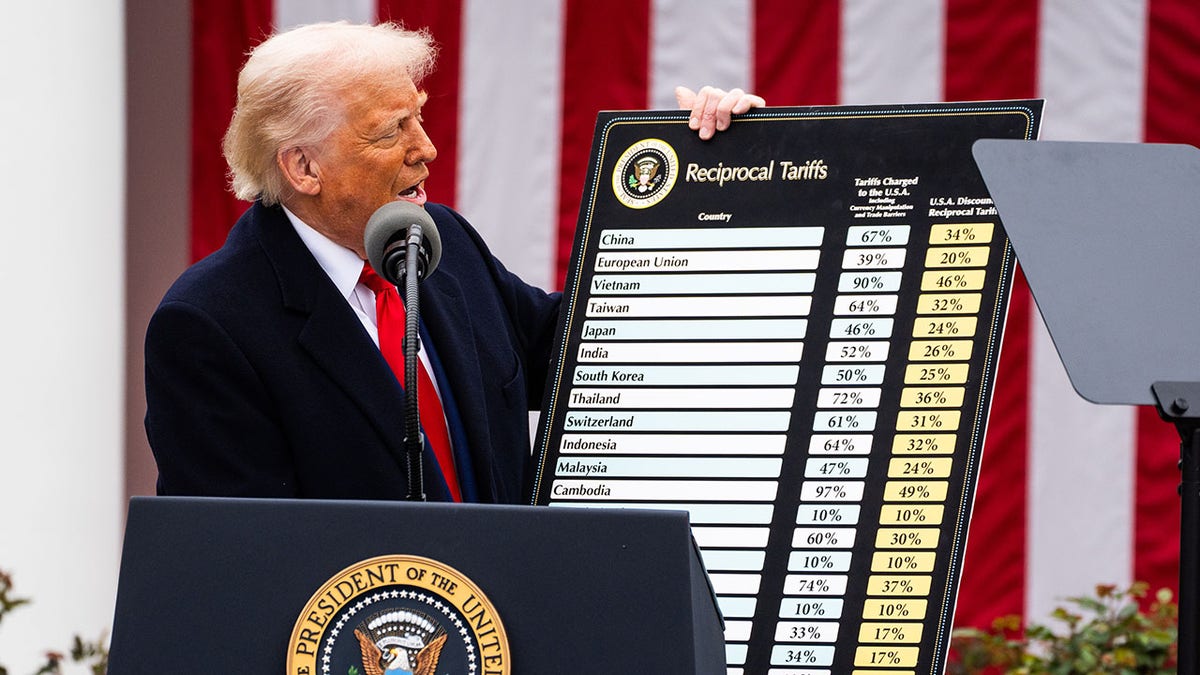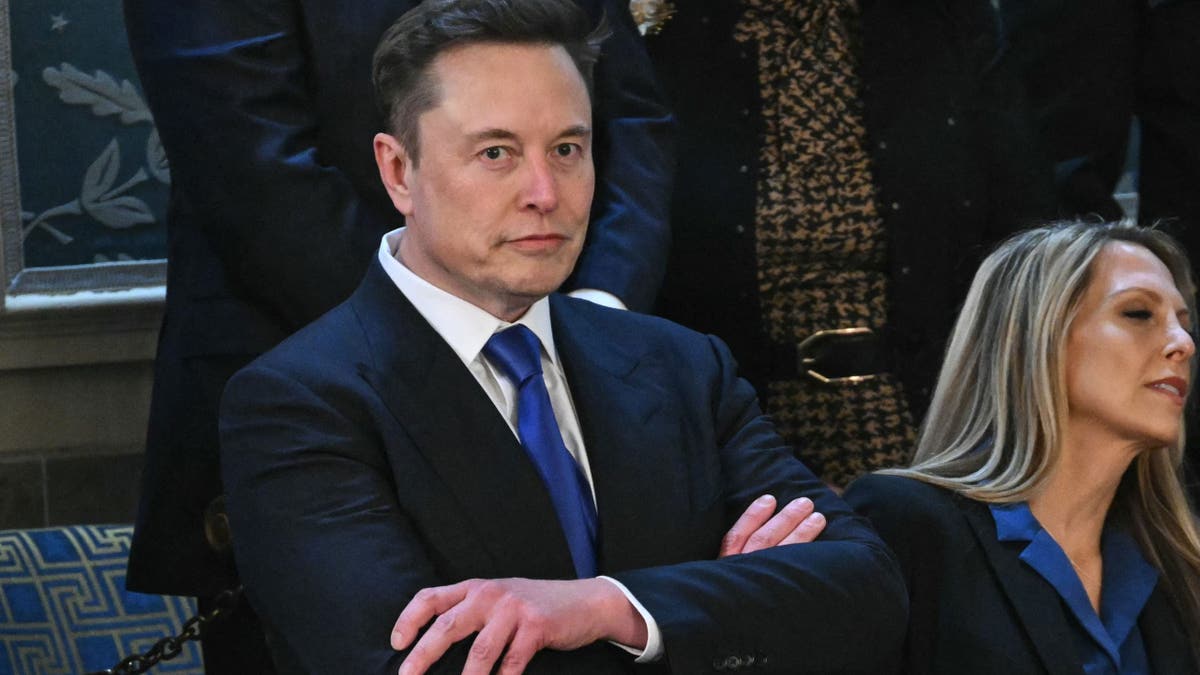President Donald Trump marked the week by unveiling an unprecedented wave of tariffs on imports to the U.S., aligning with his long-held position that other countries have taken advantage of the U.S. in trade.
Trump disclosed the historic tariffs in a ceremony at the White House’s Rose Garden for a “Make America Wealthy Again” event, asserting these new duties would generate new jobs for U.S. workers.
“For nations that treat us badly, we will calculate the combined rate of all their tariffs, nonmonetary barriers and other forms of cheating,” Trump said Wednesday.
“And because we are being very kind, we will charge them approximately half of what they are and have been charging us,” he said. “So, the tariffs will be not a full reciprocal. I could have done that. Yes. But it would have been tough for a lot of countries.”
HERE’S A CLOSER LOOK AT TRUMP’S TARIFF PLAN: WHAT TO KNOW ABOUT THE NEW DUTIES
The tariff plan establishes a baseline tax of 10% on all imports to the U.S., along with customized tariffs for countries that place higher tariffs on American goods. The baseline tariffs of 10% will take effect Saturday, while the others will take effect Wednesday.
The Trump administration previously imposed a 25% tariff on imported vehicles, up to 25% tariffs on certain goods from Mexico and Canada and a 20% tariff on shipments from China. The tariffs already imposed on Canada and Mexico remain unaffected, but the new tariffs on China will be added on top of the previous duties on Beijing, according to the White House.

President Donald Trump during a “Make America Wealthy Again” event in the Rose Garden of the White House April 2, 2025. (Demetrius Freeman/The Washington Post via Getty Images)
The tariffs have faced backlash from both parties in Congress, and allies, including Canada and Australia. A bipartisan group of senators introduced legislation Friday called the Trade Review Act of 2025 that would require the executive branch to provide Congress a 48-hour notice before imposing tariffs. Likewise, the measure would permit tariffs to expire after 60 days, unless Congress moves to approve a joint resolution codifying the duties.
Treasury Secretary Scott Bessent urged countries against imposing retaliatory tariffs against the U.S. in response.
“My advice to every country right now: Do not retaliate,” Bessent said in an interview Wednesday with Fox News. “If you retaliate, there will be escalation.”
TRUMP CONFIRMS NATIONAL SECURITY COUNCIL FIRINGS AS WALTZ’S SIGNAL CHAT WOES SNOWBALL
Here’s what also happened this week:
National Security Council firings
Trump also disclosed that several members of the National Security Council, headed by National Security Advisor Mike Waltz, were fired Thursday. Trump said the firings affected a small number of employees, and he still had a high level of confidence in his national security team.
“Always, we’re going to let go of people we don’t like or people we don’t think can do the job or people who may have loyalties to somebody else,” Trump told reporters on Air Force One when asked about media reports on the firings.
The firings come amid scrutiny over Waltz’s use of a Signal group chat to discuss strikes in Yemen after a journalist was accidentally added to the group.
Waltz created the group chat that included White House leaders like Vice President JD Vance and Secretary of Defense Pete Hegseth. The chat also included Atlantic editor-in-chief Jeffrey Goldberg.

National Security Advisor Mike Waltz and Secretary of Defense Pete Hegseth stand as President Donald Trump meets French President Emmanuel Macron in February. (Reuters/Brian Snyder)
The White House said classified information was not shared via the encrypted messaging service. However, The Atlantic published the full exchange of messages March 26. The messages included certain attack details, including specific aircraft and times of the strikes.
Still, the White House has defended Waltz and said the White House is no longer looking into the incident.
“As the president has made it very clear, Mike Waltz continues to be an important part of his national security team,” White House press secretary Karoline Leavitt told reporters Monday. “And this case has been closed here at the White House as far as we are concerned.”
Musk’s DOGE status
The White House confirmed that SpaceX and Tesla CEO Elon Musk would depart his position spearheading the Department of Government Efficiency (DOGE) later this spring in response to reports from Politico that Trump was disclosing to those close to him that Musk would “step back” from his role with DOGE in the forthcoming weeks.

Elon Musk arrives for President Donald Trump’s address to a joint session of Congress in the House Chamber of the U.S. Capitol in Washington March 4, 2025. (Saul Loeb/AFP via Getty Images)
“This ‘scoop’ is garbage,” Leavitt posted on X Wednesday. “Elon Musk and President Trump have both *publicly* stated that Elon will depart from public service as a special government employee when his incredible work at DOGE is complete.”
CLICK HERE TO GET THE FOX NEWS APP
Musk is a “special government employee.” The executive or legislative branches are permitted to take on temporary employees to address short-term projects for up to 130 days in a single 365-day period. For Musk, that period of time will expire at the end of May.
Musk and Trump have previously said they anticipate Musk will complete the work necessary for DOGE within that window of time.
Fox News’ Emma Colton contributed to this report.
Original News Source Link – Fox News
Running For Office? Conservative Campaign Consulting – Monthly Rates!
